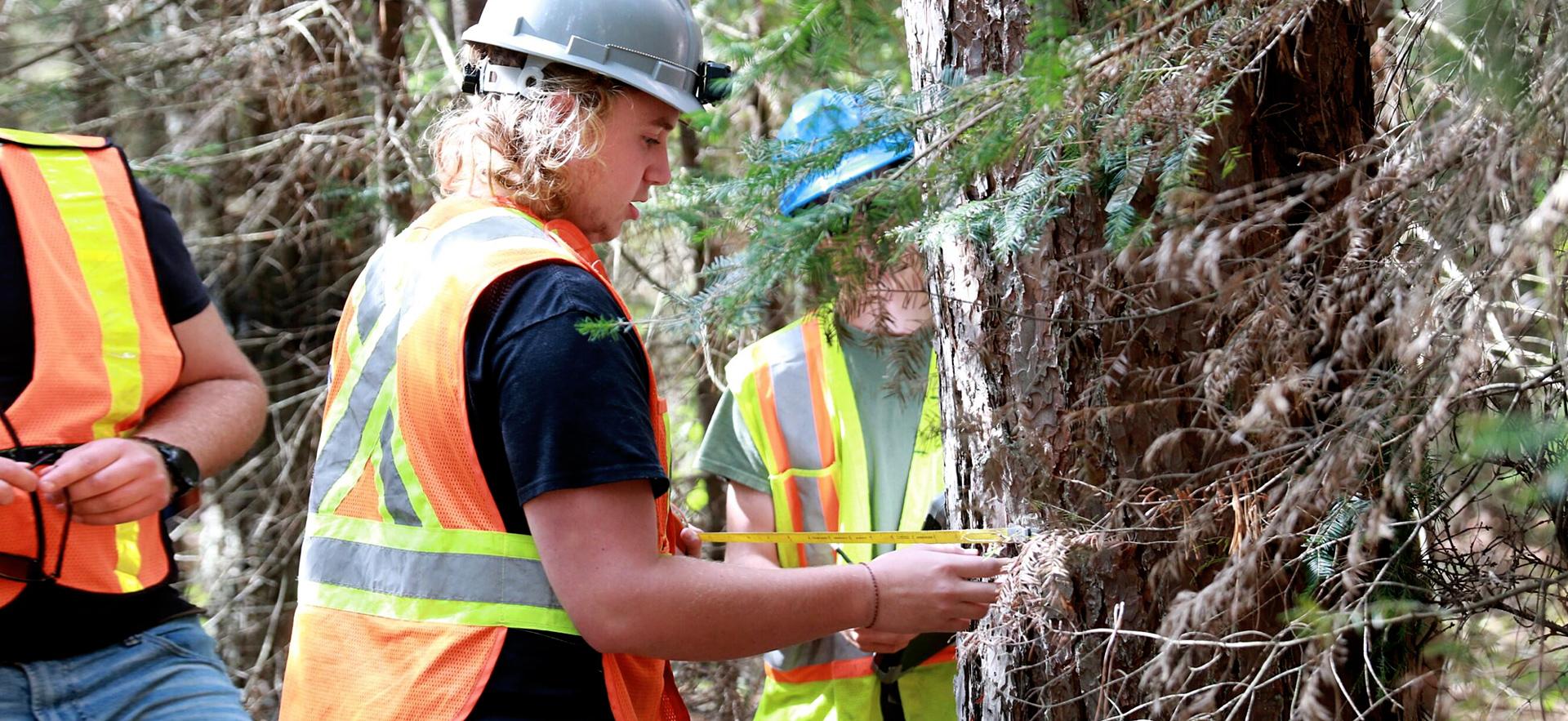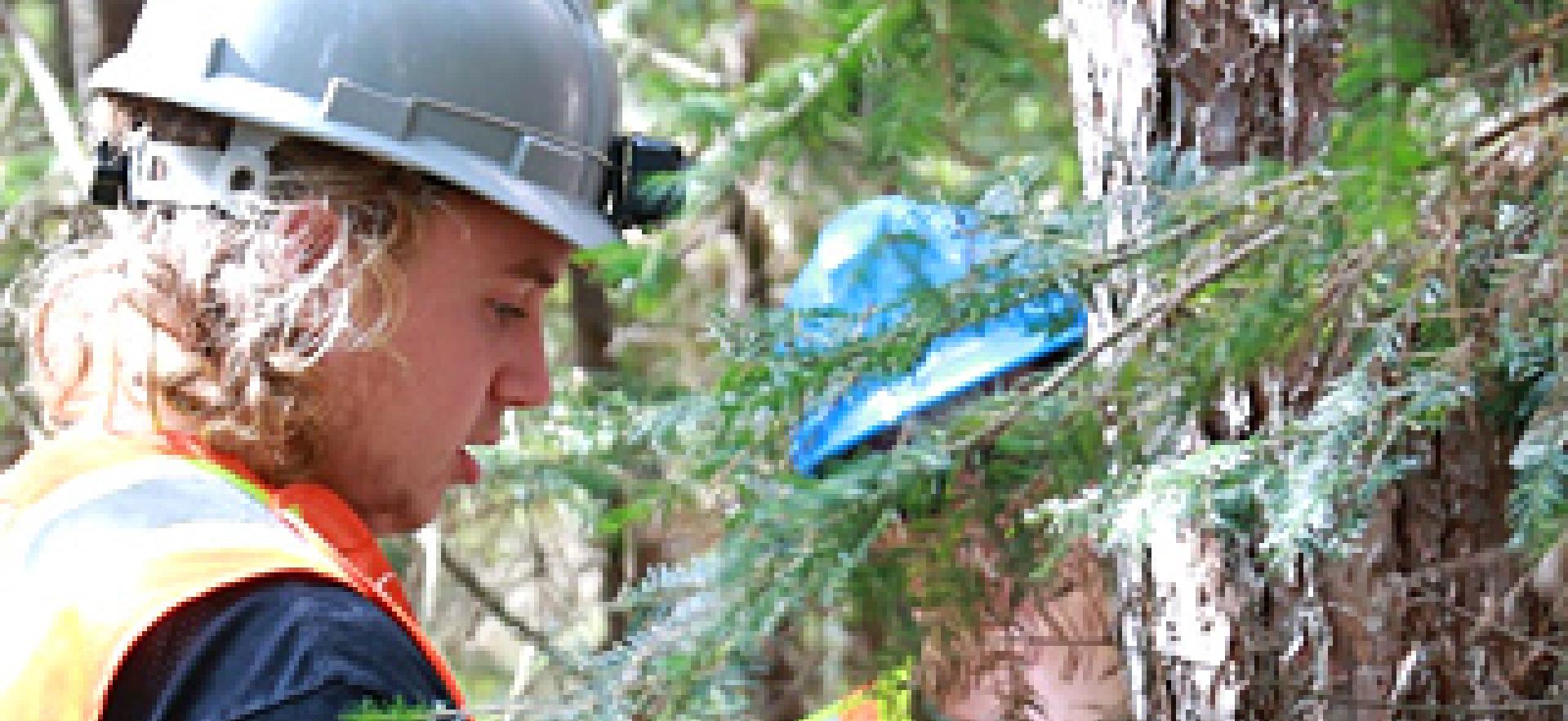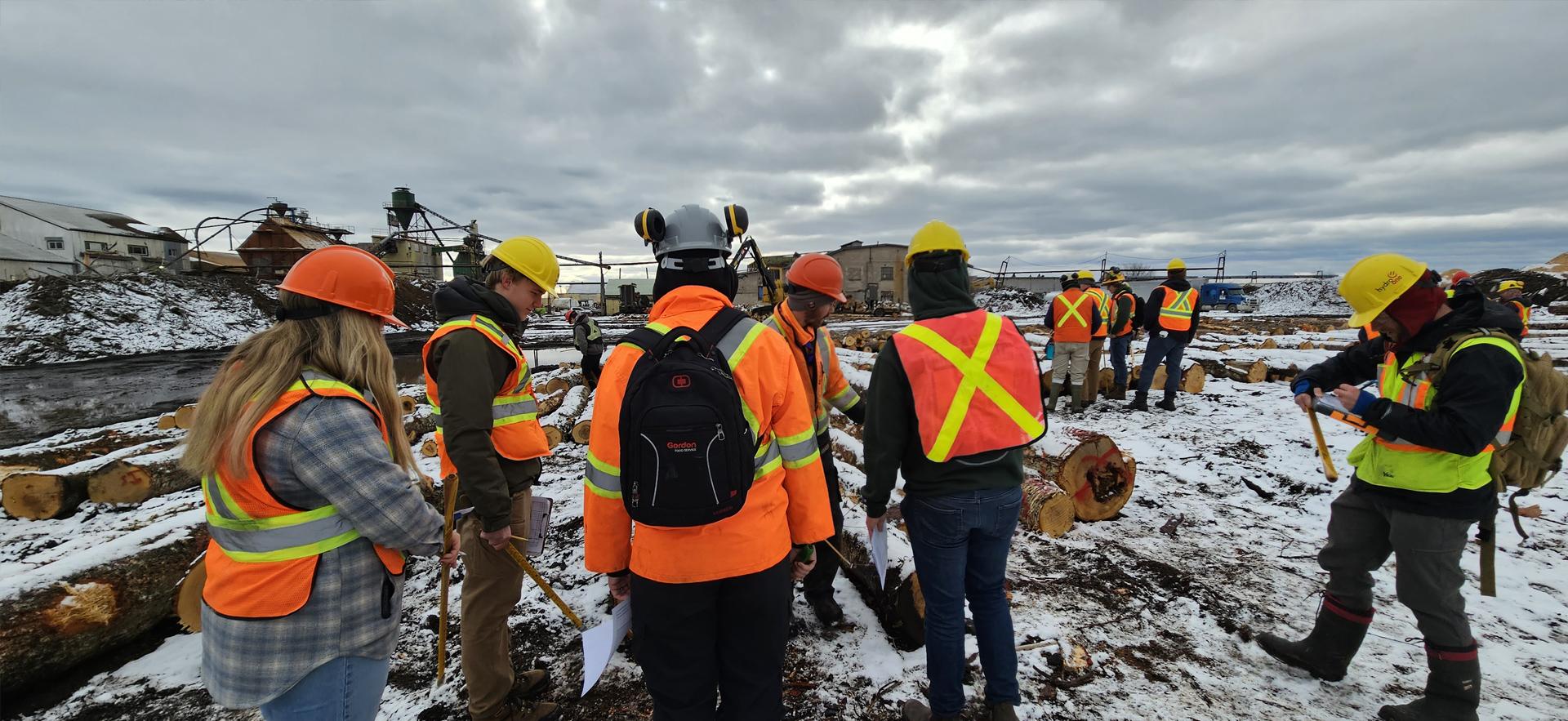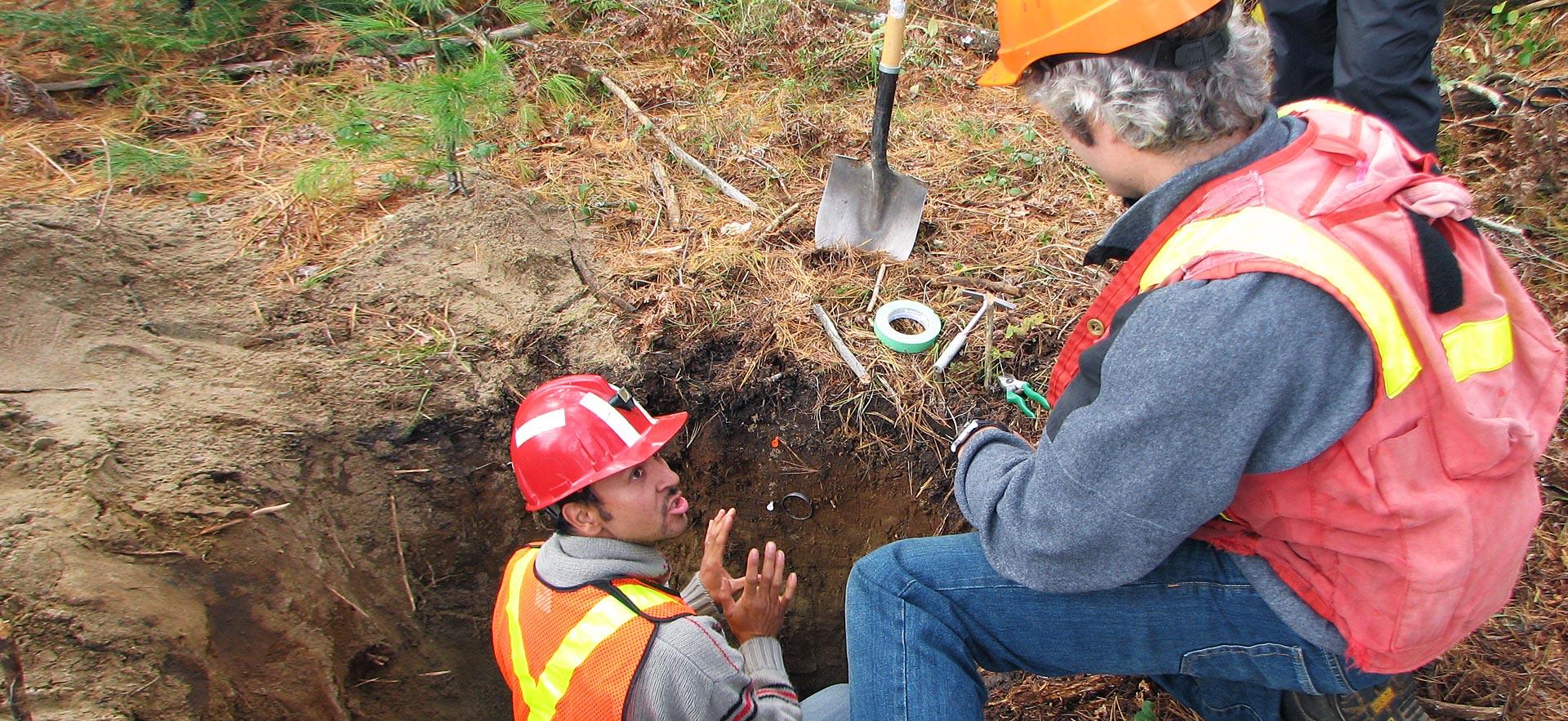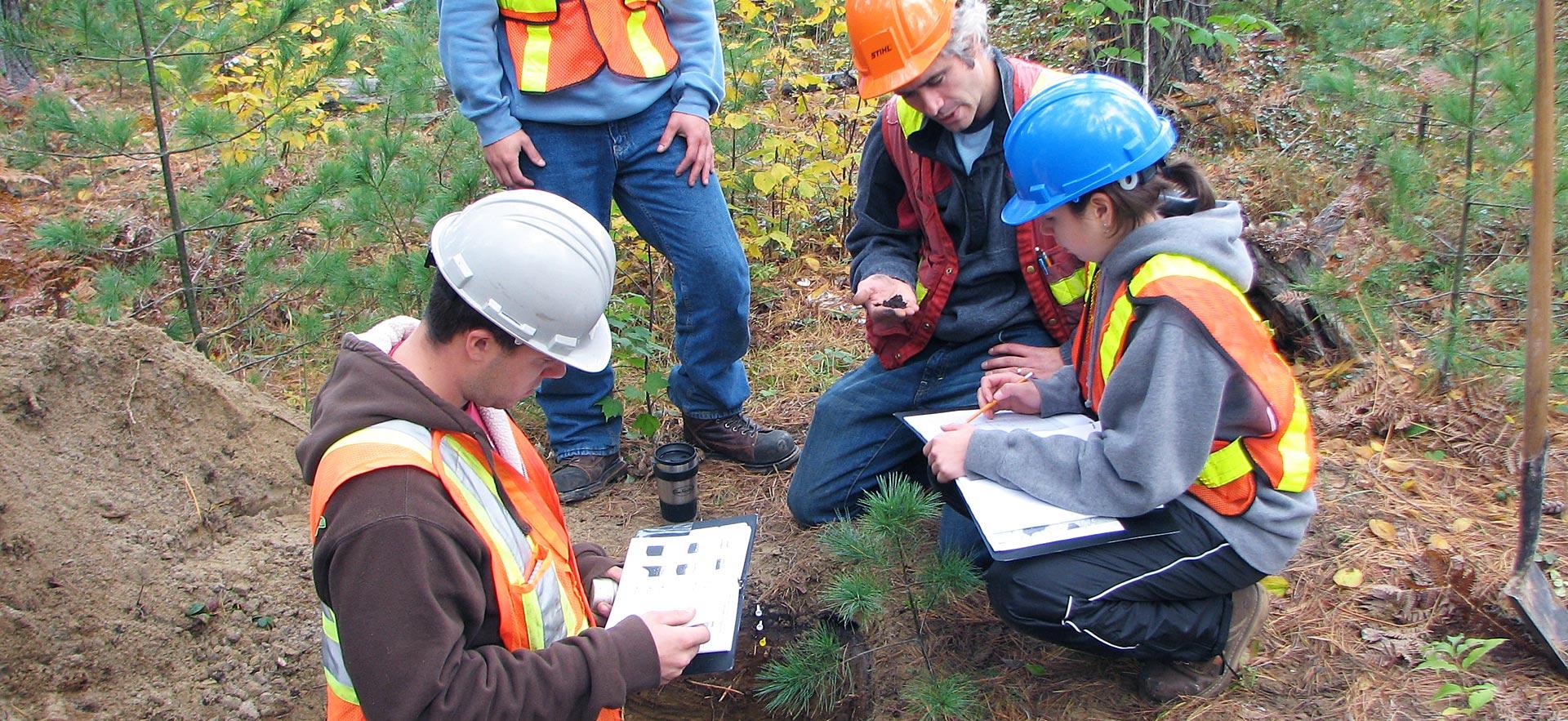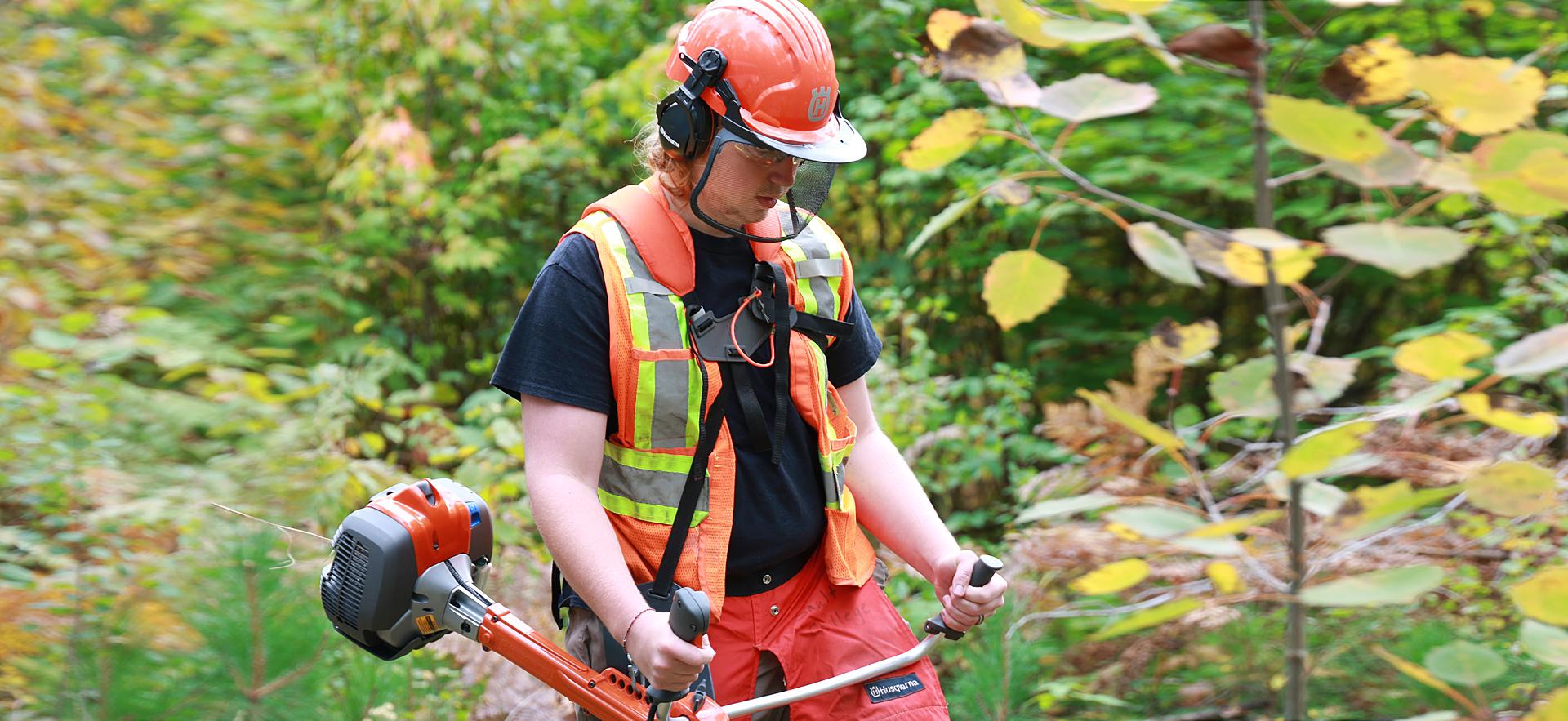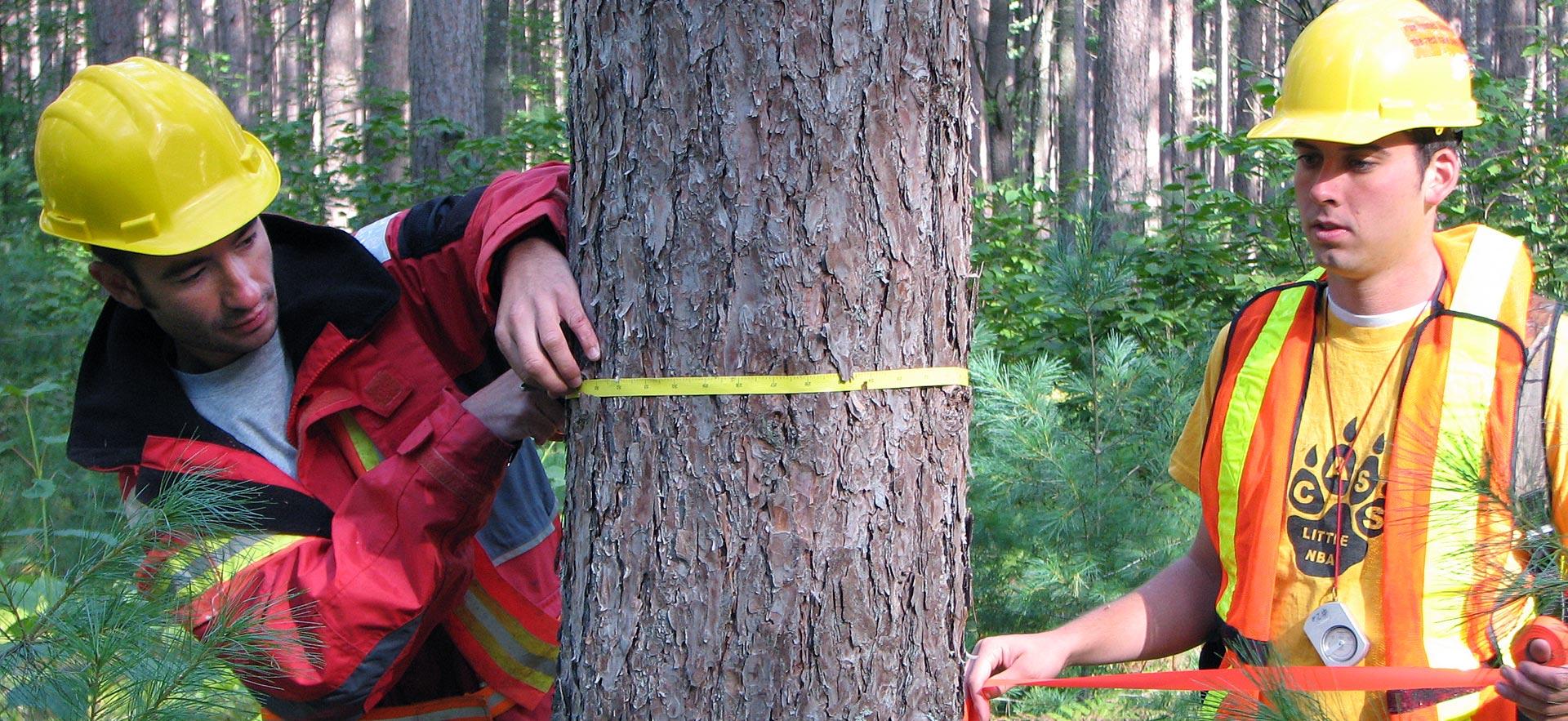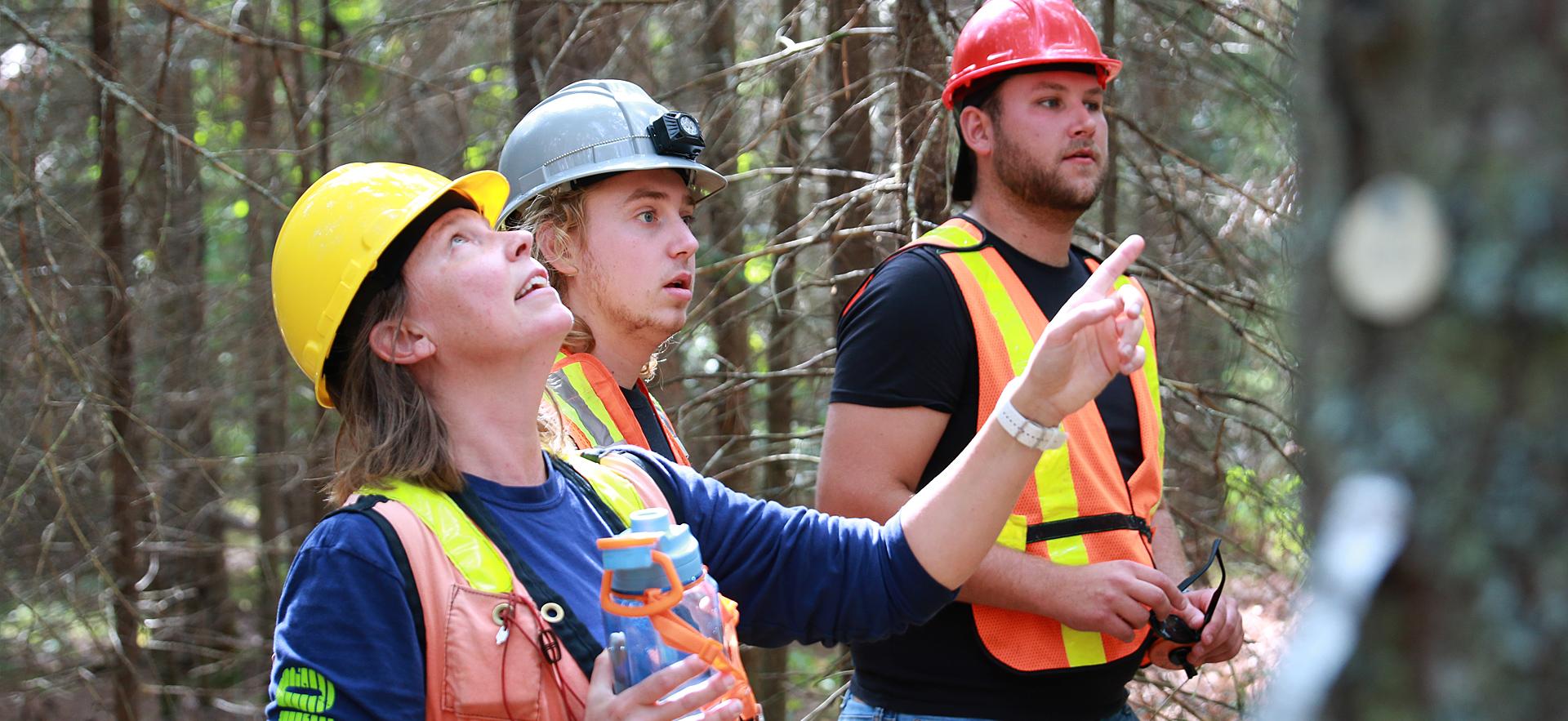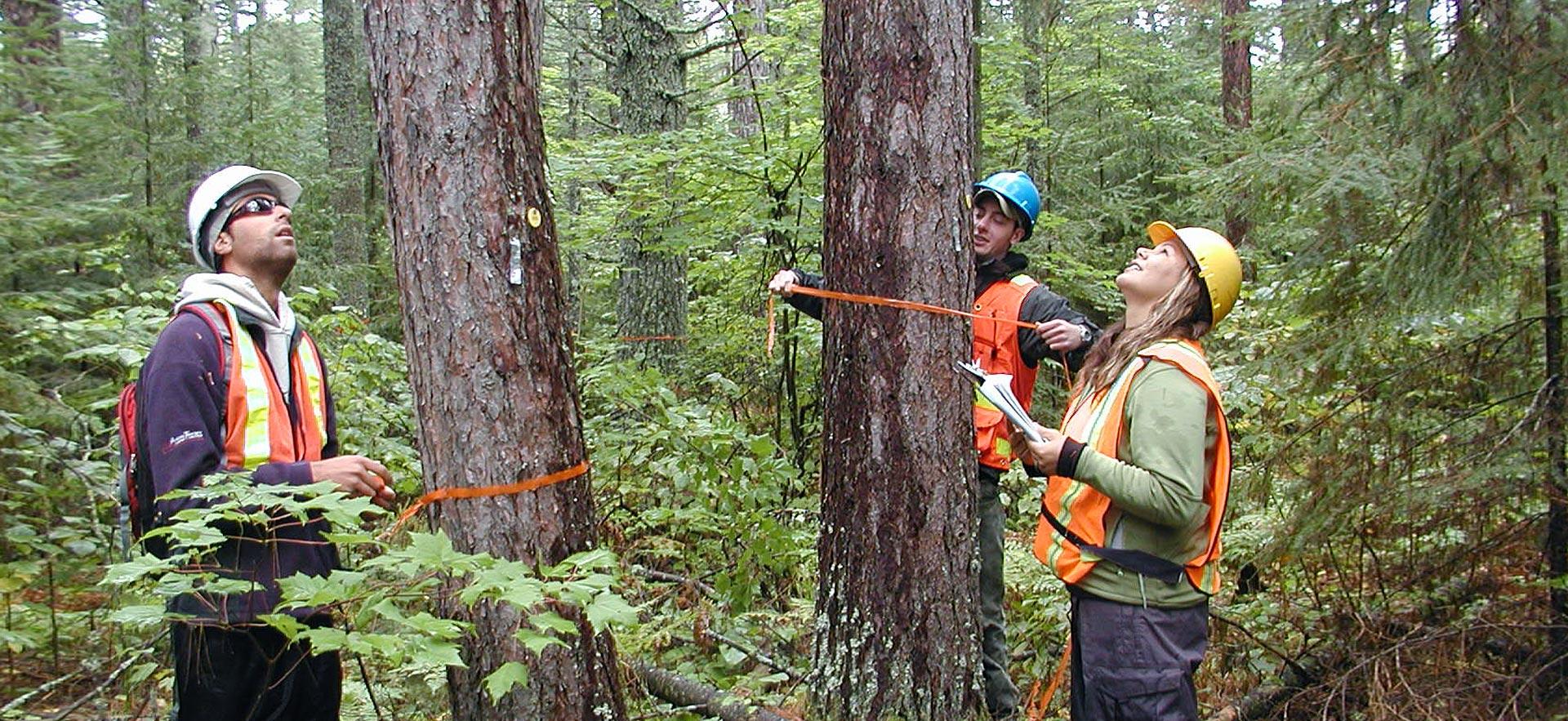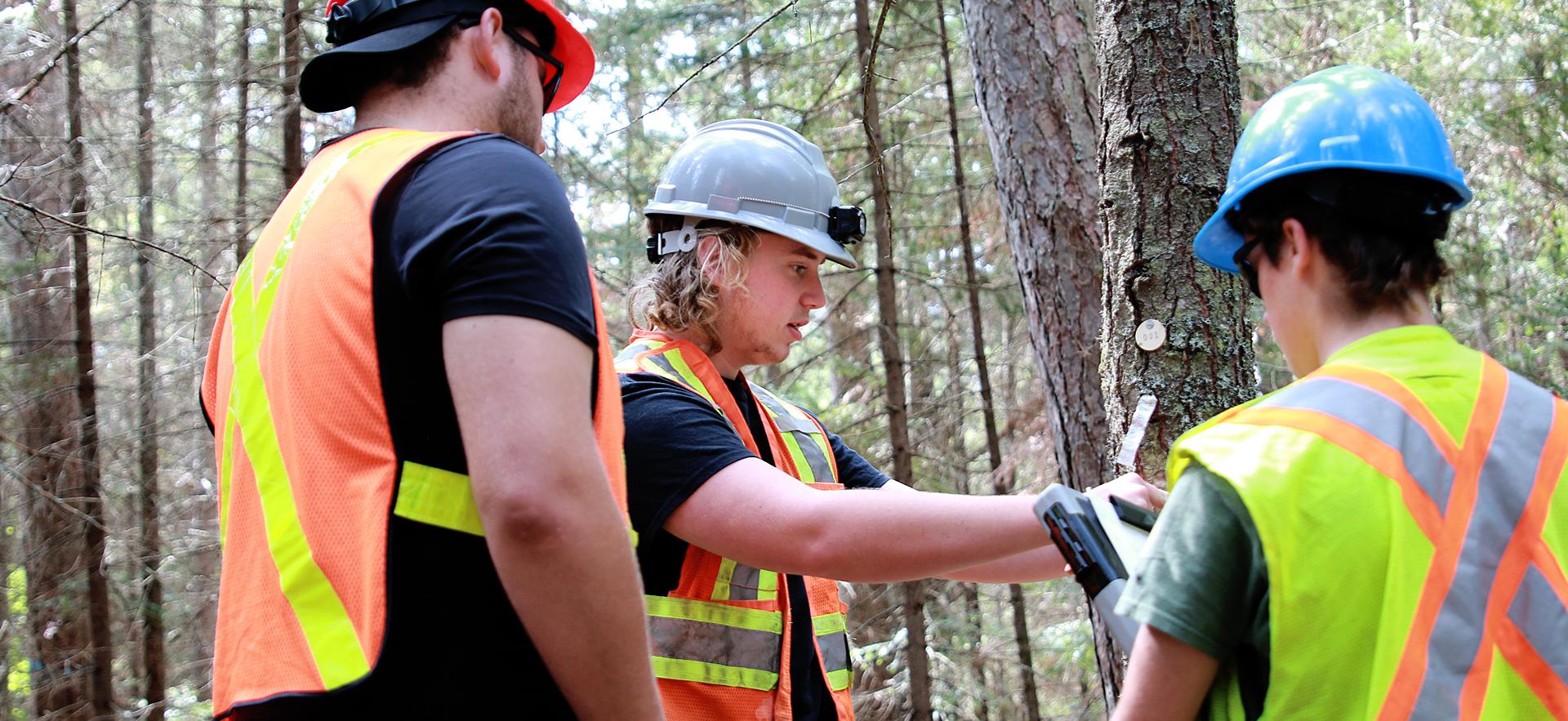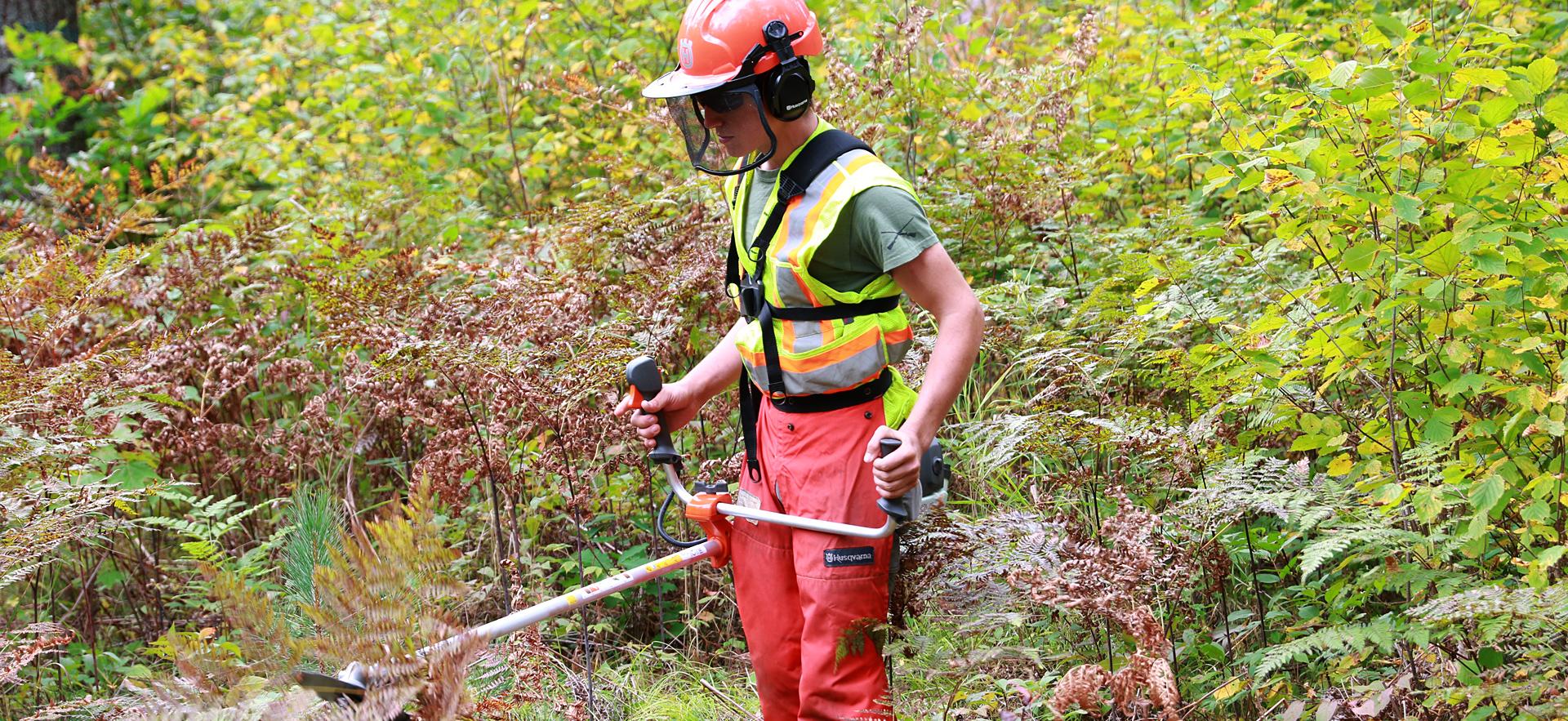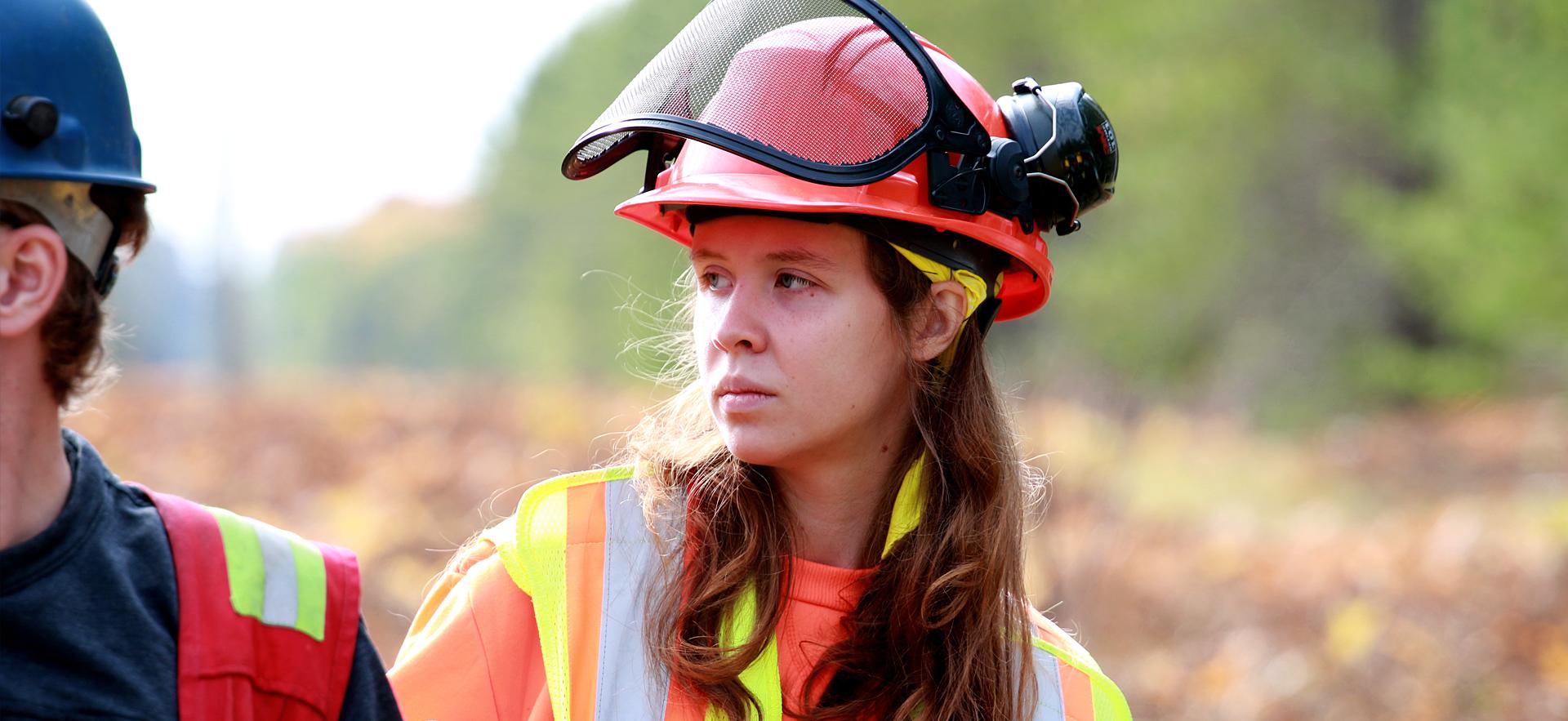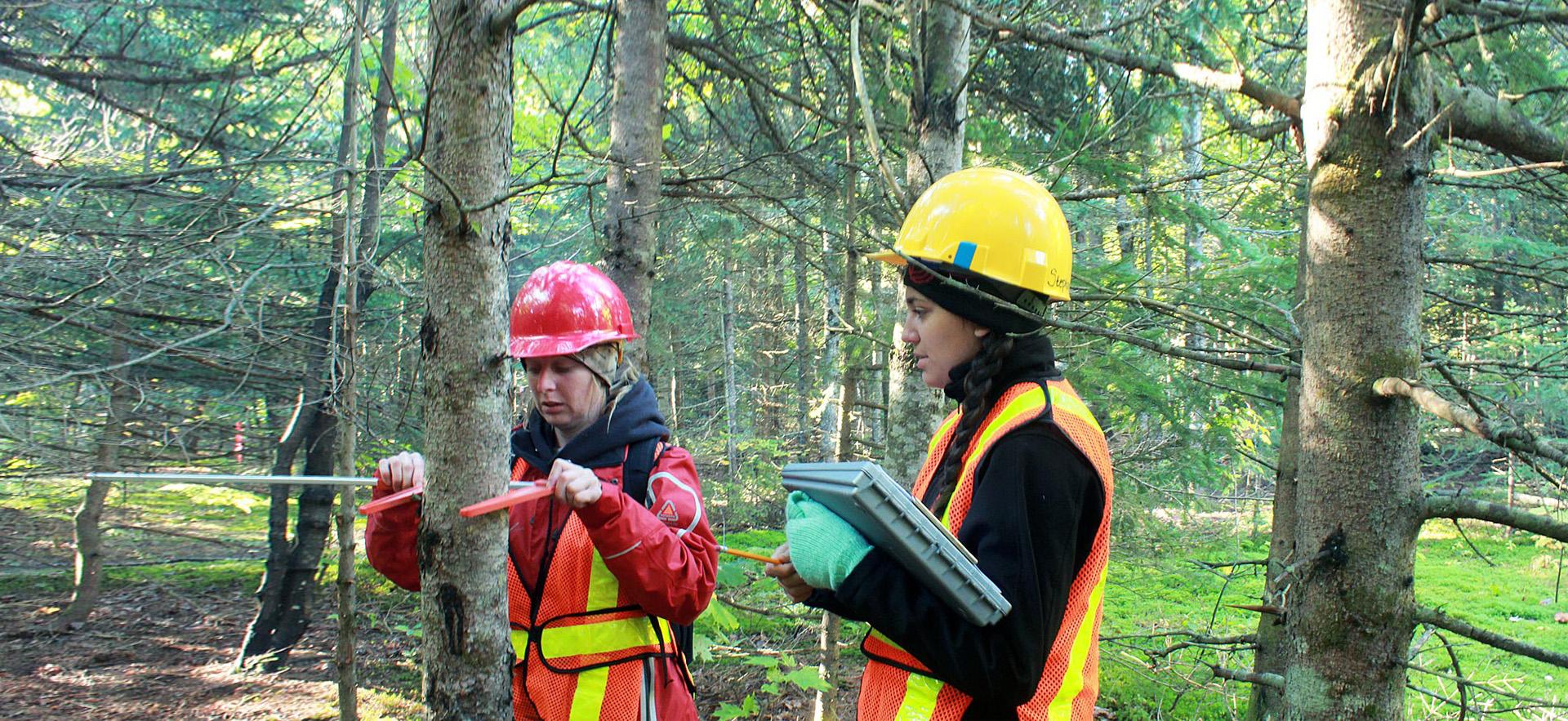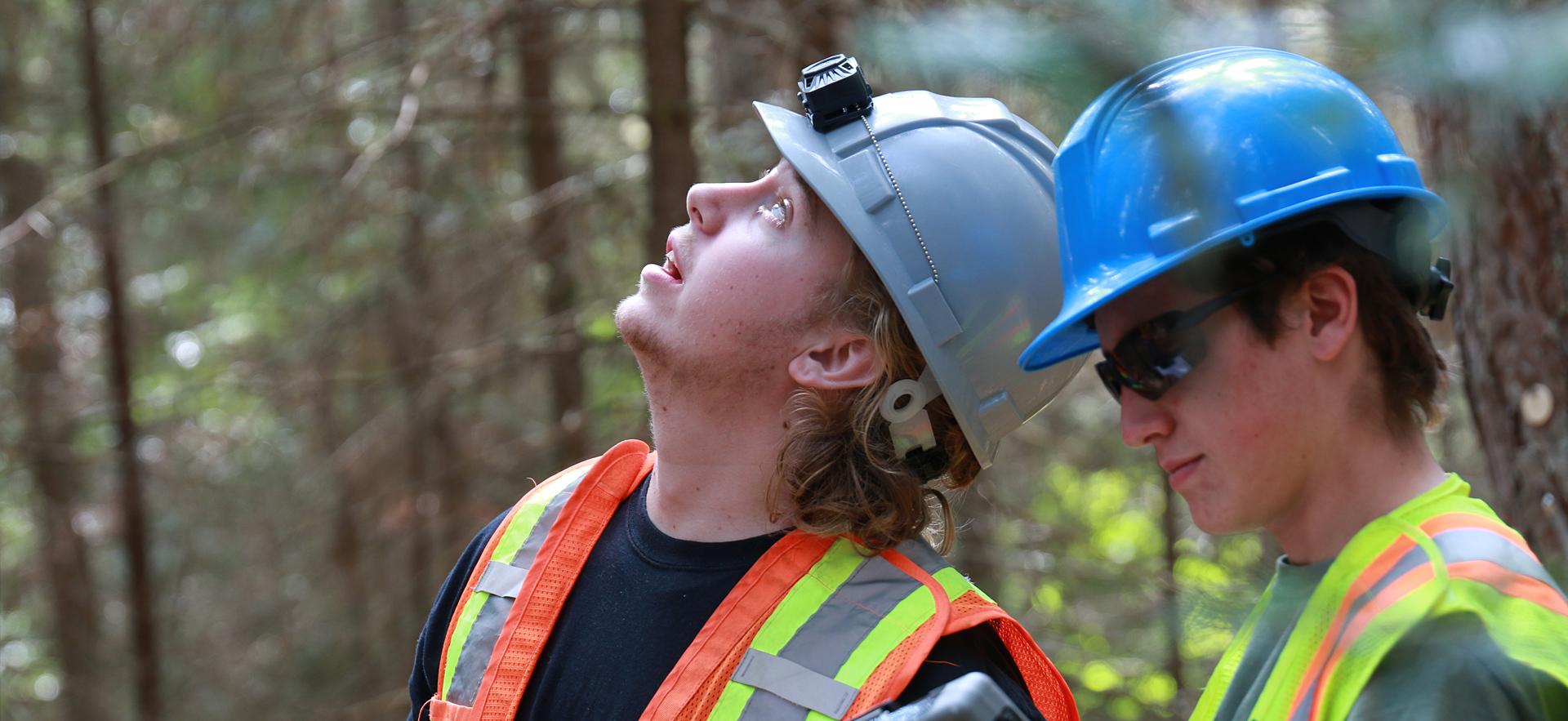Overview
Shape the future of our forests in the Foresty Technician – Conservation diploma program, where you will sustainably manage, conserve, and thrive.
This two-year diploma program is designed with a hands-on, field-oriented approach to learning essential skills to prepare you for a successful career. Learn to blend theoretical knowledge with practical skills in forestry, environmental science, and natural resource management.
Explore topics like forest ecology, silviculture, GIS mapping, wildlife habitat management, and sustainable harvesting techniques. You’ll love learning in some of the best outdoor spaces, surrounded by endless lakes, streams, and forests, nestled between Lake Superior and Lake Huron.
Gain hands-on experience collecting ecological data, identifying unique ecosystem components, and learning about insects and other organisms that threaten our forests and how to safely manage them. You will also use the latest GPS technology and equipment to navigate the best outdoor classrooms in the heart of the Great Lakes.
The program emphasizes the importance of balancing environmental health with economic interests, preparing you for diverse roles in forestry – from government agencies to private industry and beyond. With institutions like the Great Lakes Forestry Centre, Forest Pest Management Institute, Ontario Forest Research Institute, and Aviation, Forest Fire, and Emergency Services just minutes from campus, you will have unique opportunities to learn, connect, and advance your career.
Test your knowledge and skills with Field Camp and field trips, collaborate in shared workspaces, and kickstart your natural resource career with a co-op placement after second semester.
Make an impact by maintaining biodiversity and ensuring our forest ecosystems remain healthy and productive. Graduates of the program not only secure rewarding employment but also find a sense of purpose working outdoors while contributing to sustainable resource management.
Shape the future of our forests today by choosing the path to an in-demand and fulfilling career enhancing our natural environment.
Attend Natural Environment Day
Friday, March 20
Learn more about our School of Natural Environment programs, meet faculty, connect with current students, tour campus and residence, and take part in a hands-on program experience.
Degree Transfers and Pathways
Whether you're starting here with a certificate or diploma program, or transferring your credits from another institution or informal experience into a program at Sault College, we have so many ways for you to continue your postsecondary education with us. Explore pathways to a degree or a diploma and learn about transfer options.
Pathways Beyond >
Earn your diploma here and then choose to complete your degree with one of our partnering universities, in as little as one more year.
Pathways Within >
Complete two diplomas in as little as three years or earn a certificate on the path towards a diploma or degree, all right here.
Pathways Into >
If you've completed any courses from another institution or have informal learning experiences, transfer your credits into a program here.
Accredited By ECO Canada
Accreditation of our School of Natural Environment programs provides formal validation of our commitment to high-quality education, accountability, and public trust. A program's curriculum is critically analyzed against national occupational standards to ensure it meets environmental industry needs. As of 2023, Forestry Technician - Conservation is one of our five programs to be accredited.
The programs have been accredited by the Environmental Careers Organization of Canada (ECO Canada) based on conformance with the National Accreditation Standard for Post-secondary Environmental Programs. The accreditation has been granted through the Canadian Environmental Accreditation Commission (CEAC), an independent body that oversees ECO Canada’s post-secondary accreditation program.
Learn more about our accreditation >
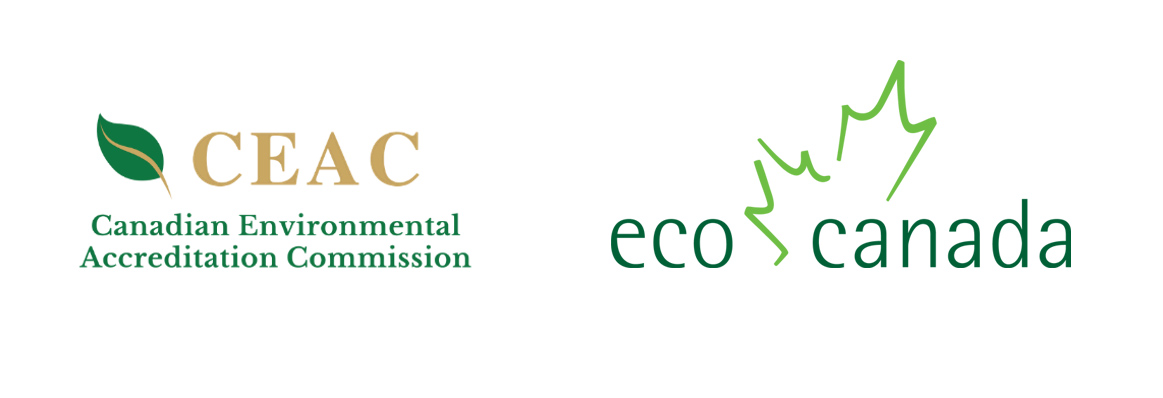
Courses
| ENV411 - 1 Career Readiness |
| NRT242 - 2 Natural Environment Business Management |
| NRT244 - 3 Urban Forestry |
| NRT245 - 3 Forest Harvesting and Products |
| NRT248 - 4 Forest Management and Planning |
| NRT261 - 3 Forest Inventory |
| NRT262 - 3 Advanced GIS |
| NRT235 - 2 Sustainable Resource Management |
| GEN110 - 3 Student Selected General Education |
| Note: *This student-selected general education course code indicates a general-education course is taken in this semester. Students will choose from a selection of courses (details) prior to the semester in which the student-selected general education course is to be taken. |
Requirements & Program Information
Ontario Secondary School diploma with Grade 12 English (C) ENG4C or mature student status. Missing any requirements? Get them for free from Academic Upgrading.
Have you been educated outside of Canada and/or have your studies been completed in a language other than English? Please follow this link for additional admission requirements and considerations Admission Requirements for students educated outside of Canada
Career Path
According to every recent employer poll, forestry in Canada is about to face an employment crisis with an insufficient number of trained forestry professionals and workers available as current employees retire. Sault College Forestry Technician - Conservation graduates are sought after by a wide variety of employers hoping to fill the following job types: resource and lands technicians, firefighting technicians, federal and provincial research technicians, photo interpretation analysts, inventory field workers and supervisors, greenhouse supervisors, insect and disease rangers, forest industry scalers, foremen and harvesting supervisors. Our graduates may find work in the forestry sector soon after graduation. A reality of today`s world though is that work will generally be available to new graduates on a contract basis for a few years until your work abilities are demonstrated. The willingness to move throughout Ontario or Canada is a definite asset when looking for a job.
Graduate transfers to BScF degree programs are available at Lakehead University and Michigan Technological University. For more information, and to explore entrance requirements please contact Lakehead University and Michigan Technological University..
Fees & Costs
| Domestic | International | ||
|---|---|---|---|
| Tuition | Ancillary | Tuition | Ancillary |
| $2,975.80 | $1,843.00 | $15,757.30 | $2,493.00 |
These fees are for the 2025-2026 academic year (year 1 of study), and are subject to change. Please visit your Student Portal to view your Schedule of Fees.
Important links
Contact
This is a co-operative education program. Students are required to complete at least one co-op work placement (CWF100) in order to graduate. To prioritize preparing graduates for employment in the natural environment field, a career management course is taken in each semester of the program.
Program College Contact (Yr 1 of Program): Elisa Muto, elisa.muto@saultcollege.ca
Program College Contact (Yr 2 of Program): Ryan Namespetra, ryan.namespetra@saultcollege.ca
Sault College has been named an official SP100 Forest Firefighter Certification training agency. The Forest Firefighter Certification will be delivered to all Forestry Technician - Conservation students in their program.
This 40-hour course is intensely focused on safety and will prepare students to assume the role of an entry-level forest fire crew member. Students will be trained to MNRF standards in the maintenance and operation of equipment such as the power pump, and in proper use of suppression hand tools, communications and camping equipment. Students will also learn basic fire behaviours and fire terminology.
Interested students can obtain the certification by enrolling in the Forestry Technician - Conservation program at Sault College. The SP100 certificate is embedded in the forest fire management course, which is offered in the first semester of the program.
